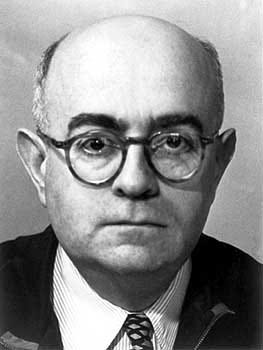Contra Adorno: A Preliminary Plea for Omphaloscopy
Against a totalitarian denial of transcendence
The Greek omphalos = the German Nabel = the English ‘navel.’ So omphaloscopy is navel-gazing, and an omphaloscopist is one who 'scopes out' his navel. But have there ever been practioners of meditation (Versenkung) who literally gazed at their navels or who came close to doing such a thing? A little gazing at my well-stocked library reveals that something like this practice is recommended in the Method of Holy Prayer and Attention, which tradition attributes to St. Symeon the New Theologian (949-1022), abbot of the monastery of St. Mamas in Constantinople. Referring to the central passage of the Method, the anonymous author of The Jesus Prayer reports:
In order to pray, it is said, the disciple must close the door of his cell, place himself in a state of quiet, sit down, rest his chin against his chest, look towards the middle of his stomach, restrain his breathing, and make a mental effort to find the "place of the heart" while repeating all the time "the epiclesisof Jesus Christ." (p. 47)
Of course, the term 'navel-gazing' is almost always used in a deprecating manner by the worldly to refer to any sort of idle practice of 'philosophizing' whether discursively or non-discursively, and when Adorno refers to a man who gazes at his navel, ein Mensch der seinen Nabel beschaut (Philosophische Terminologie I, Suhrkamp 1973, 142), he shares in the deprecation.
A central concern of Theodor Adorno in Philosophische Terminologie, lectures he delivered in Frankfurt am Main in 1962-63, is to explain his concept of philosophy. Since philosophy is the love of wisdom, and since the wise man is apt to be viewed as a navel-gazer, Adorno is led to the question of Kontemplation and Versenkung, which latter term renders graphically the process of meditation, suggesting as it does a sinking down into the depths of one's inwardness, a moving from the superficies of consciousness to its source. Philosophy is supposed to be something 'deep,' and one way depth gets understood is in terms of inwardness and subjective reflection.
But as one might expect, the depth to which meditation leads is judged by Adorno to be a false depth, something deceptive and 'abstract' (in the Hegelian sense) and therefore unreal. Still, Adorno is nothing if not dialectical, and so he grants some merit to the process of subjective immersion. The idea that the Absolute is to be found by the inward path, an idea common to all mystical traditions and to all religious traditions (e.g., Eastern Orthodoxy) whose connection with mysticism has remained vital, ist nicht ganz grundlos, (142) not entirely without basis. For if philosophy is to exist at all, the subject must differentiate itself from the object by turning within and realizing its own existence as a subject.
So Adorno grants that subjective reflection is essential to philosophy. But when subjective reflection becomes Versenkung it leads to illusion, not truth, to an abstract inner emptiness, to something merely tautological along the lines of 'I am I' or the Heideggerian "Being is Itself." Mystical depth is a false depth. The true depth of the subject is constituted when it seiner selbst entaeussert, das heisst, aus sich hinaus und in die Andersheit hineingeht (143), "externalizes itself, that is, comes out of itself and enters into otherness." The language is of course Hegelian.
Adorno asserts (143) that the subject has no content except insofar as it is referred to something external. A subject by itself, sunk into itself, is contentless, a mere abstract emptiness. Subject and object mediate each other. The subject is what it is only in relation to the object. Since neither can exist without the other, both are mere abstract moments when considered separately. It follows that a subject who ruthlessly excludes all otherness, all that is objective, ends up with merely the concept of the subject, not its concrete reality. He ends up with a mere abstraction. So no true depth can be attained in this way. True depth, and genuine concretion, is to be had only by the subject caught up in and constituted by its social relations. (144)
I of course adamantly reject this notion that we are constituted in our true selfhood by social relations, and with it, the notion that meditation is a deceptive practice that leads us into a false depth. I would say that it is precisely our social existence that is our false existence (for the most part) and that our true life is the life of inwardness.
Here the paths must part, and one must resolutely choose one or the other.
Adorno's thought is totalitarian and denies all Transcendence: the true Absolute is the social whole of which we are 'moments' (in the Hegelian sense). Das Wahre ist das Ganze as Hegel says in the Preface to the Phenomenology of Spirit. Nothing within the whole has any substantial being: everything is mediated (vermittelt) by everything else. One problem is how anything can be constituted by its relations which other things. The very notion of a relation presupposes that which stands in the relation, and it is difficult to see how the being of these relata can reduce to their being-in-relation. The Hegelian view is monistic and anti-personalistic. It denies the ultimate reality of persons.



